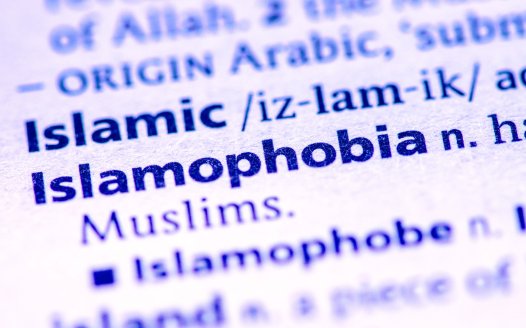Does Scotland’s justice minister realise the reach of his own hate crime bill?
Posted: Tue, 16th Jun 2020 by Chris Sloggett
Humza Yousaf has claimed a bill he's proposing isn't a threat to free speech because it sets a high threshold for criminality. But his careless words suggest he isn't taking concerns seriously, says Chris Sloggett.
Last Thursday Scotland's justice minister, Humza Yousaf, briefly fielded questions from MSPs on the new hate crime bill which he's proposing.
During the debate Conservative MSP Donald Cameron asked him if he'd reconsider a section of the bill that proposes to outlaw 'stirring up hatred' on a variety of grounds, including religion. Cameron highlighted opposition from the National Secular Society, religious groups and academics in support of his question.
In response Yousaf claimed groups he'd met "understood" that the relevant section of the bill was "not an attack on freedom of speech" because it "sets a very high threshold" for criminality. He went on (with emphasis added):
"Behaviour would have to be not only abusive and threatening but likely to stir up, or having the intention of stirring up, hatred."
This appears to be a misrepresentation of the bill. The relevant part of the draft law doesn't say "abusive and threatening"; it says:
"A person commits an offence if—
- the person—
- (i) behaves in a threatening or abusive manner, or
- (ii) communicates threatening or abusive material to another person, and
- (b) either—
- (i) in doing so, the person intends to stir up hatred against a group of persons… or
- (ii) as a result, it is likely that hatred will be stirred up against such a group."
The relevant 'groups' here are defined by religion, age, disability, sexual orientation, transgender identity and variations in sex characteristics.
This isn't the first time the justice minister has switched "and" with "or" while referring to this section. Defending his plans in The Scotsman on 8 May, Yousaf quoted the exact words from the bill – "threatening or abusive" – but also wrote:
"Let me be clear, people can hold and express views on any topic and subject – including opposing Scottish government policy. It is absolutely not a criminal offence to do so – unless this is expressed in an abusive and threatening manner with an intention to stir up hatred, or where it is likely that hatred will be stirred up."
In some contexts you could fairly describe this section of the bill while swapping the word 'and' with the word 'or' ("This will criminalise abusive and threatening words", for instance). But the swap can also make a substantial difference – and in both of these instances, Yousaf's language suggests he doesn't appreciate that. The words in the bill will make it easier to convict someone than the words he sometimes slips into using.
A comparison with the law in England and Wales helps to illustrate this. The equivalent section of the Racial and Religious Hatred Act 2006 only uses the word "threatening". "Threatening or abusive" will create a weaker test of speech than that. But the alternative words the minister has used – "abusive and threatening" – imply a marginally tougher one.
As I wrote last month, there are good reasons to be concerned about this bill. The claim that it sets a "very high threshold" doesn't reflect reality. Where the law in England and Wales only considers a speaker's intent, this bill considers either their intent or the speech's likely outcome. In Scotland, a clause says speech won't be criminalised "solely" because it criticises religion. In England and Wales, the equivalent clause specifies that the law shouldn't have the "effect" of criminalising criticism of religion.
The minister's dismissal of free speech concerns is misguided. And his careless words suggest he's not taking them seriously. That should change – and he should start by correcting the record to parliament.
UPDATE (25 June): A Scottish government official has told The Times that Yousaf will offer a correction to the official record at Holyrood after opposition politicians urged him to do so.
Image: Humza Yousaf (contains information licensed under the Open Scottish Parliament Licence V.2)
Emphasis added in all cases.
While you're here
Our news and opinion content is an important part of our campaigns work. Many articles involve a lot of research by our campaigns team. If you value this output, please consider supporting us today.








